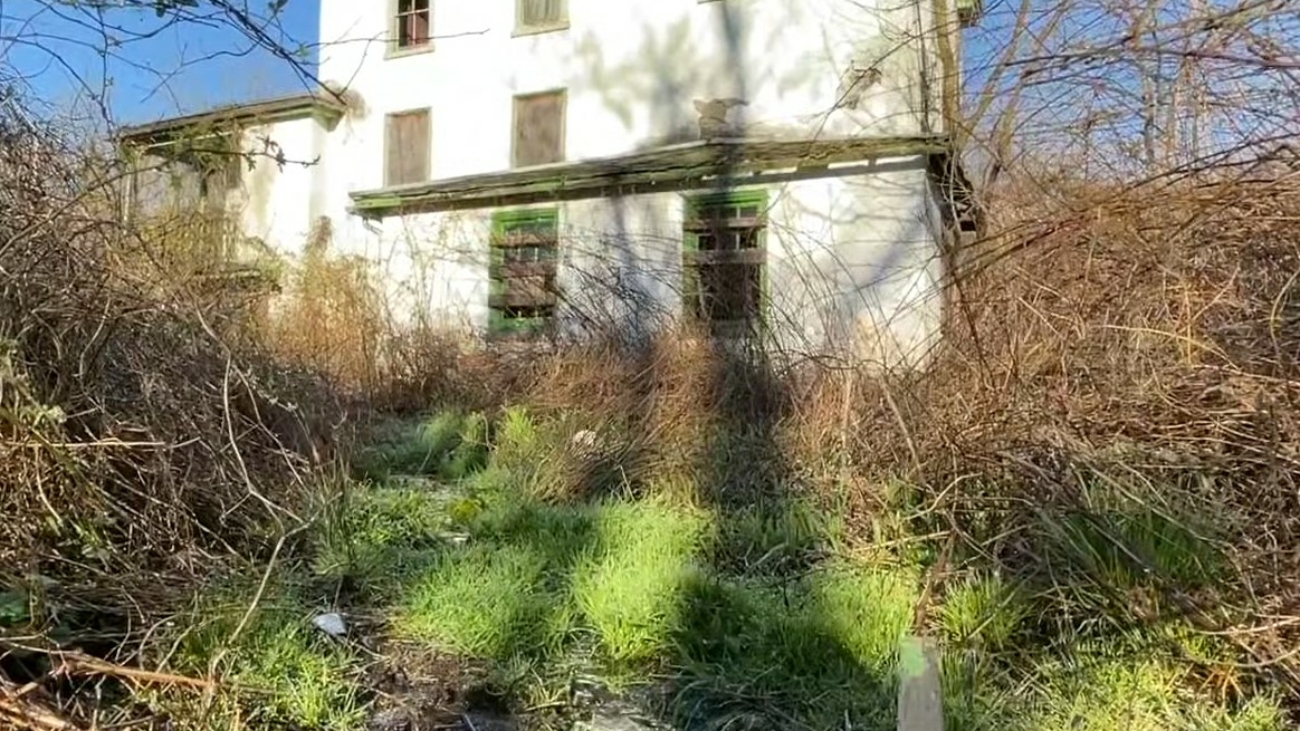Why Are Homes Abandoned With Everything Left Behind?
The strange attraction of abandoned houses catches people’s attention. Whether it’s a run-down Victorian mansion, or an average suburban house, an abandoned building raises issues that demand for solutions. Why was it initially left there? What’s even more perplexing is why homes are abandoned with everything still inside.
These kinds of situations frequently give rise to tales of unexpected departures, strange events, or downturns in the economy. This article explores 10 key factors that contribute to homes being abandoned and seeks to clarify some of the difficulties surrounding these situations.
Additionally, it will discuss relevant concerns that arise up by such properties, what often occurs to them, and how to tell if a property is truly abandoned. Finally, the article will examine the viability of buying such properties for individuals who are intrigued by the concept of revitalizing an abandoned property.
What’s Considered an Abandoned Property?
A residential or commercial real estate that has been unoccupied for a prolonged length of time or that its owner no longer actively maintains is generally considered to be an abandoned property. Depending on the jurisdiction and unique circumstances, the time frame varies, but generally speaking, a property can be declared abandoned after many months of disregard. Overgrown vegetation, a backlog of mail, or utility disconnections are frequent indicators.
Although ownership hasn’t been expressly given up, the owner has effectively abandoned the property, which frequently necessitates intervention from local authorities.
Why Are Homes Abandoned With Everything Left Behind? 10 Reasons
Here are 10 reasons why abandoned homes are left with everything left behind.
1. Economic Downturn
So why are homes abandoned with everything left behind? The first reason is economic downturns. Homeowners may abruptly vacate their residences due to the general financial suffering that characterizes such periods. A person’s ability to retain a property is compromised when their financial condition suddenly gets worse.
In an effort to relocate, frequently to more economical living arrangements, the owner may decide to leave the home in the face of growing debts and declining income, leaving behind furniture, appliances, and personal possessions.
For instance, during the subprime mortgage crisis in 2008, numerous houses across the United States were left vacant as residents were either evicted or left voluntarily before eviction procedures started because they could not afford to pay their mortgages. The abandoning wasn’t always a deliberate action; sometimes, a quick exit was necessitated by an imminent financial crisis.
2. Sudden Life Changes
Because of unanticipated circumstances like death, sickness, or family difficulties, life may be unpredictable, and homes might occasionally be abruptly abandoned. In uncommon circumstances, the owner may pass away without leaving a direct heir to manage the property, placing it in a precarious situation.
A medical emergency might occasionally lead to prolonged hospitalization, during which time a property is neglected. Families experiencing a crisis might not have the time or emotional energy to care for the property, which could eventually result in its abandonment. Simply said, the immediacy of the issue takes precedence over cleaning up a home, therefore the personal items are left behind.
3. Legal Issues
Legal issues can additionally lead property to be abandoned. For instance, a property that is involved in a protracted probate procedure, heir conflicts, or issues with property titles may wind up being ignored for a long time. Owners or possible successors may decide to give up the property as a less stressful option if they find it difficult to negotiate the maze of legal concerns.
Maintaining the property concurrently might be financially difficult due to the rising costs of legal proceedings. In these situations, the home frequently continues to degenerate in a condition of arrest, with possessions accumulating dust while court cases or indifference drag on.
4. Environmental Factors
A residence may become uninhabitable as a result of natural disasters such as floods, hurricanes or wildfires. Even while these occurrences typically result in the emptying of homes, there are times when the disaster strikes so suddenly that there is no time to remove belongings. Or, the homeowners could initially depart with the intention of returning but discover that the damage’s severity makes doing so impossible or impracticable. As a result, the house and everything inside are abandoned.
For instance, several homes in New Orleans were left in an abandoned state with possessions remaining inside following Hurricane Katrina. Numerous inhabitants were unable to return immediately due to the disaster’s scale, and its long-term effects resulted in a large number of abandoned properties. In these circumstances, the surroundings themselves become overwhelming obstacles to habitation.
5. Fear of Property’s History
A property’s past or reputation may also cause it to be abandoned. Properties that have a stigma attached to them—possibly because of criminal activity, a death, or haunting rumors—find it difficult to sell or even to reside there. The psychological strain might become too great for the residents to take, and they may decide to leave the house completely.
Sometimes, homeowners may decide that it is easier to leave their house in its current state and move on, rather than going through the hassle of trying to sell the property. In some instances, personal belongings may be left behind as the desire to cut ties with the property outweighs making sensible decisions like clearing it out. In such cases, the best course of action is to quickly sell the property to cash home buyers.
6. High Maintenance Costs
Owning a house involves more than simply making the mortgage payment; there are also continuous expenses for utilities, taxes, and repairs. Some homeowners may find the financial burden to be too much to bear, particularly those who inherit aging or deteriorating homes. A home that at first glance appeared to be a desirable asset might rapidly become a problem, especially if it needs significant structural repairs. Homeowners may decide that giving up the property is the better option given the financial strain.
The choice to leave nothing behind may be motivated by the belief that the contents are not worth the trouble or expense of relocating, particularly when weighed against the rising expenses of upkeep.
7. Job Relocation or Migration
A house may also be abandoned if the owner must relocate for employment or better opportunities. When a move is so unexpected, some homeowners choose to “cut and run,” abandoning the majority of their possessions. This is particularly true if the new location is far away and transferring everything would be expensive and difficult.
The house may develop into an abandoned shell with recollections of a life formerly lived in it if they originally want to return for their belongings but discover that it is not possible.
8. Social Factors
A community’s social dynamics may also result in abandoned properties. Residents may leave their houses as a result of an increase in crime rates or the breakdown of social structures in the neighborhood. In certain instances, entire neighborhoods may see a mass evacuation, particularly if there is a feeling that the place has become less valuable or safe.
The property may wind up being abandoned since it is difficult to sell due to the stigma associated with such regions. Homeowners who are fleeing a potentially harmful situation might not take the time to remove possessions, which adds to the spooky emptiness of such houses.
9. Inherited Property
Frequently, properties that are inherited but not wanted are left unoccupied. If the inheritor lives somewhere else, they might not have an emotional connection to the property or could find it difficult to maintain. The home therefore turns into a liability rather than a benefit. In such situations, the simplest course of action could be to just vacate the home, leaving behind any possessions that belonged to the previous resident when they passed away.
10. Complexity of Ownership
Sometimes a property’s ownership structure might become so complicated that it is simpler to let go of it than to sort out the issues. This is particularly true when several family members are interested in the property. Conflicts and disagreements can make the house a controversial matter, and the ensuing stalemate may cause it to be ignored and finally abandoned.
The emotional and mental toll of resolving ownership disputes frequently leaves no one with any interest in the possessions within, resulting in a house being abandoned with everything still inside.
Issues with Abandoned Homes
More than just an eyesore, abandoned houses provide a number of concerns to the neighborhood. Pests and criminal activity, such as drug use or squatting, can occur in them. Furthermore, these buildings frequently degrade over time, developing safety issues. As they deteriorate, they may also have a cascading effect on the value of neighboring properties, resulting in lower property taxes for the local government, which in turn has an impact on development and community services.
What Happens to Abandoned Homes?
An abandoned house might have several outcomes. Local governments may occasionally seize the property through a legal procedure and either rehabilitate it for public use or sell it at auction. Other times, these houses could be taken over by nature, decaying further until they are totally unusable. To keep the property from becoming a nuisance in the neighborhood, neighbors or community organisations will occasionally take the effort to preserve it to some level.
How to Find Out if a House is Abandoned
A house’s abandonment status can be determined in several different ways. Start by examining the property’s condition; keep an eye out for overgrown vegetation, a backlog of mail, or disconnected utilities. You can check the status of property taxes and utilities with local authorities for a more formal check or by consulting public records. An abandoned property is typically clearly identifiable by a protracted period of unpaid bills.
Can You Buy an Abandoned Property?
Buying an abandoned property is much more difficult than buying a typical house. The first step would be to identify the property’s owner, which might include conducting legal research and even visiting a probate court. There can still be outstanding taxes or other debts to pay even after finding the owner.
However, if you’re prepared to go through these difficulties, you might be able to find abandoned homes for sale at a discount from their market price, creating a potential investment opportunity. Sometimes it can be really easy, and an abandoned home could be found for sale on Ownerly or Zillow.
Before buying an abandoned property, use our mortgage calculator to first understand what your mortgage repayments could be. This will help you find out if the abandoned home is within your budget or not.
FAQs
- How long before a property is considered abandoned?
Depending on the jurisdiction and unique circumstances, the timetable varies. Usually, a property can be considered abandoned after many months of disregard.
- Are abandoned homes dangerous?
They could be because of structural deterioration, insect problems, or potential criminal activity.
- What happens to the belongings left behind in an abandoned home?
They often stay there until local authorities, new owners, or both clean it out or reclaim it.
Conclusion
Homes that have been abandoned, especially ones with possessions inside, often resemble scenes from a mystery book. However, the causes of such abandoning are frequently rooted in actual difficulties, such as monetary crises, legal issues, abrupt life changes, and environmental problems. While these assets provide a number of problems, they also present opportunities for renovation and investment.
The world of abandoned houses is complicated, much like many other facets of real estate, yet grasping this complexity may provide insights into both real estate markets and the various factors that influence people’s lives.
You should now hopefully understand why are homes abandoned with everything left behind.


